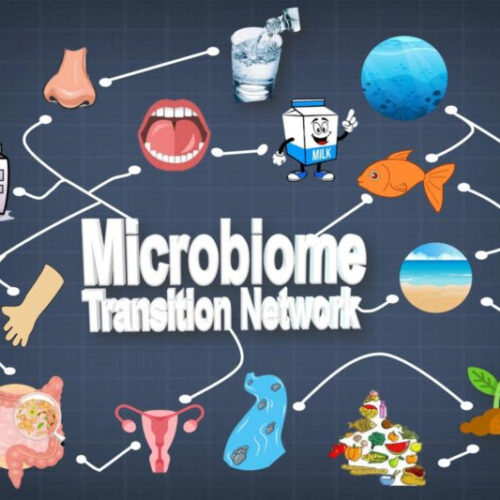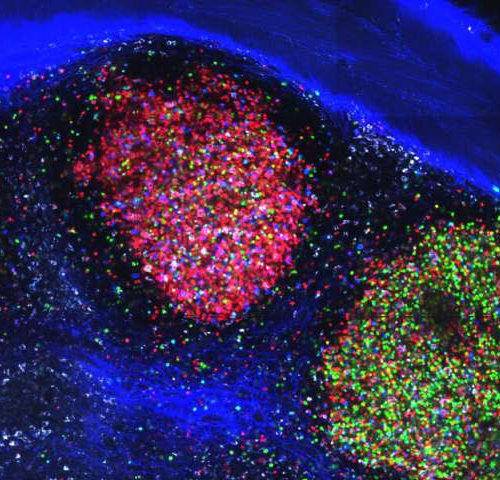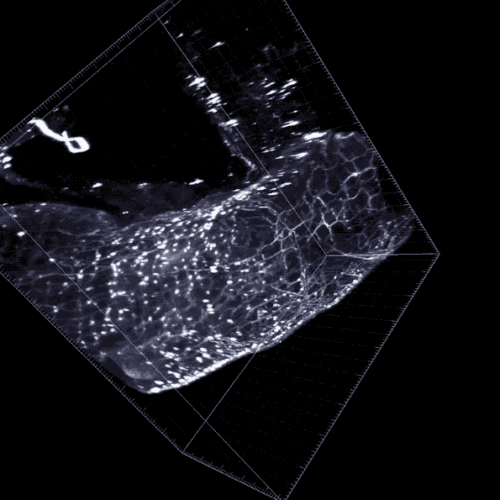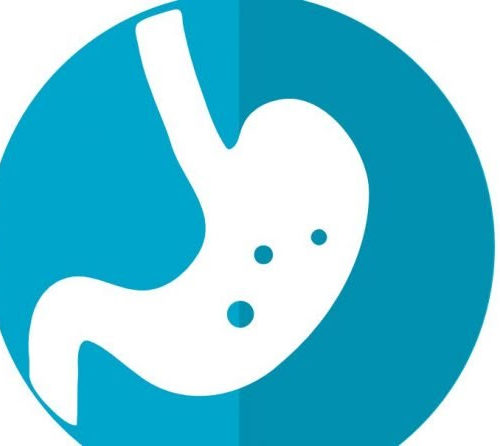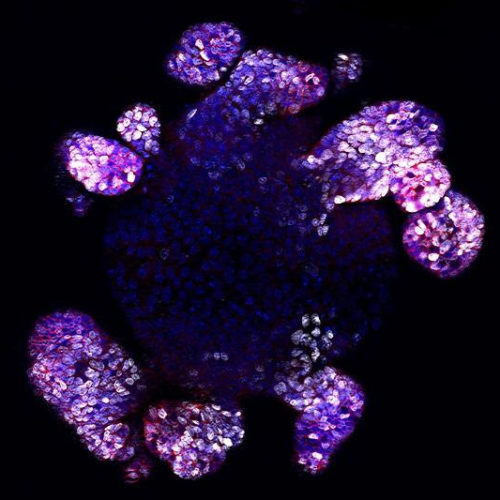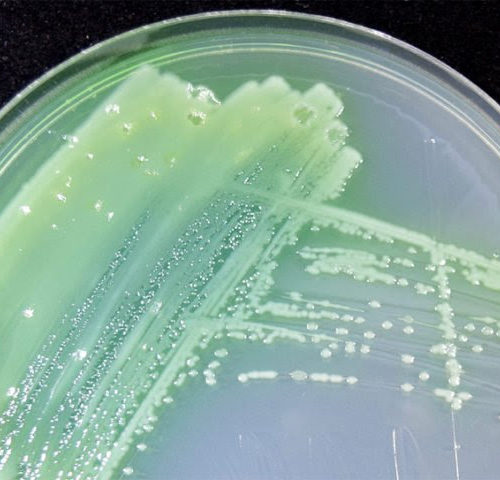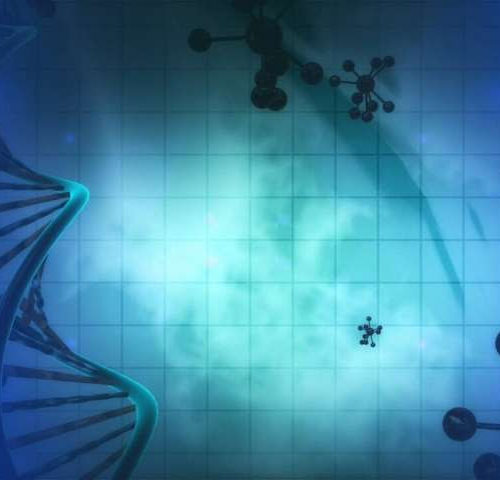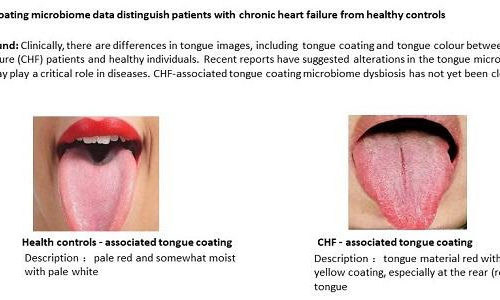The Earth contains about one trillion species of microbes — only about one-tenth of which have been identified. A human can house 100 trillion microbes, creating a microbiome that serves an ecosystem of microbes. Microbes connect and transform in myriad ways, creating and combining, and separating microbiomes anew. How can scientists begin to parse out...
Tag: <span>microbes</span>
How the immune system deals with the gut’s plethora of microbes
by Rockefeller University A large, multi-colored collection of germinal centers observed in the mesenteric lymph node of a mouse. The gut is an unusually noisy place, where hundreds of species of bacteria live alongside whatever microbes happen to have hitched a ride in on your lunch. Scientists have long suspected that the gut’s immune system, in...
Microbes in the gut may influence metabolism
by Katherine Fenz, Rockefeller University A cross section of the colon with enteric neurons highlighted. These neurons interface directly with gut microbes. Credit: Rockefeller University The 10 trillion bacteria living in your digestive system may not be human, but they seem to be as integral to your body as your heart or liver. A growing number...
Sampling the gut microbiome with an ingestible pill
Gut microbes affect human health, but there is still much to learn, in part because they’re not easy to collect. But researchers now report in ACS Nano that they have developed an ingestible capsule that in rat studies captured bacteria and other biological samples while passing through the gastrointestinal (GI) tract. Currently, researchers obtain gut microbes by...
Discovery of natural compound may help fend off antibiotic resistance of hard-to-treat infections
The Vanderbilt Laboratory for Biosynthetic Studies, led by Brian Bachmann, professor of chemistry, has discovered a naturally occurring compound that is resilient to antibiotic resistance because of its rare properties. Antibiotic resistance, the ability of bacteria to evade antibiotic treatment, has been identified by the Centers for Disease Control and Prevention as one of the...
How to repair your gut
MONASH UNIVERSITY FLUORESCENT PICTURE OF AN INTESTINAL ORGANOID (STAINED FOR THE PROLIFERATION MARKER KI-67 (WHITE), THE STEM CELL MARKER EPHB2 (RED) AND DNA (BLUE). view more CREDIT: (C) MONASH BDI In a world first, Monash University researchers have identified a key biomolecule that enhances the repair of your gut lining by prompting stem cells to...
Not as gross as it sounds: predicting how bacteria in mucus affect human health
Inhale, exhale. Humans breathe between 17,000 to 23,000 times a day, on average. But for more than 70,000 children and young adults around the world, taking a breath can be a struggle because of a rare disease, cystic fibrosis. A gene that normally triggers a certain protein to move chloride, found in salt, to cell...
Oat and rye bran fibres alter gut microbiota, reducing weight gain and hepatic inflammation
In a newly published experimental study, the consumption of dietary fibre from oat and rye brans supported the growth of beneficial gut microbiota, which in turn ameliorated cholesterol metabolism, enhanced gut barrier function and reduced hepatic inflammation. In addition, diets enriched with oat or rye bran were shown to attenuate weight gain. The effects of...
New infectious disease test accurately diagnoses infection in minutes
by Walter and Eliza Hall Institute of Medical Research Melbourne researchers have developed a fast, new test for infections and infectious diseases that could transform Australia’s ability to provide targeted clinical care and respond to pandemics and biosecurity threats. Called c-FIND, the test has the potential to rapidly and accurately detect multiple viral, bacterial or...
Tongue microbes provide window to heart health
EUROPEAN SOCIETY OF CARDIOLOGY CLINICALLY, THERE ARE DIFFERENCES IN TONGUE IMAGES, INCLUDING TONGUE COATING AND TONGUE COLOUR BETWEEN CHRONIC HEART FAILURE (CHF) PATIENTS AND HEALTHY INDIVIDUALS. RECENT REPORTS HAVE SUGGESTED ALTERATIONS IN THE TONGUE… view more CREDIT: @EUROPEAN SOCIETY OF CARDIOLOGY 2020 Sophia Antipolis – 23 June 2020: Microorganisms on the tongue could help diagnose...

